Graham Reid | | 6 min read
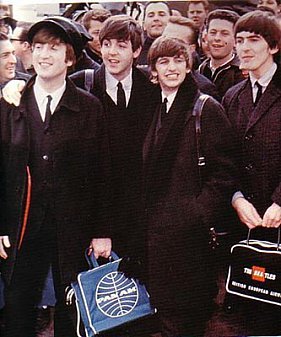
As the saying goes, the past is another country - -often a pretty innocent one, and certainly cheaper. That's why many people prefer to live there.
Roll the clock back to over 40 years ago, and look around: a National Government led by Keith Holyoake; the All Blacks back home from a successful tour of France and Britain; Brass Band Parade on 1ZB on a Sunday morning and black'n'white television.
There were plenty of sheep in the hills to export to Mother England, and a pretty gentle pace to life. After all, shops were closed on weekends and pubs kicked you out at 6pm so there wasn't much to do anyway but go to the beach, mow the lawn or maybe dress up and go to the pictures.
But things were changing. In Dallas in late '63, President John F. Kennedy was assassinated and in Britain an exciting noise had emerged from Liverpool. It was called Beatlemania and behind the screams was the sound of four young men and their cheerful, guitar-driven pop.
And then they came here.
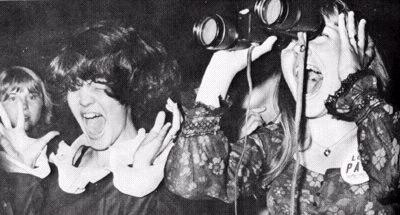
On June 21 1964 the Beatles landed at Wellington Airport to be greeted by 7000 screaming fans. For the following eight days, until they flew out of Christchurch, hysteria reigned wherever they appeared. And more than just men's hairstyles changed after they left.
This pivotal period in New Zealand's popular culture is the subject of a book by writer and unabashed Beatles fan Graham Hutchins, Eight Days A Week.

Through press clipping and reminiscences (Beatle fan and sportscaster Keith Quinn, local tour manager Trevor King, Jack and Lynda Mathews of Hamilton who were second cousins to John Lennon), Hutchins recreates those heady days and the impact they made. A lot of people bought guitars.
These well-illustrated pages are filled with the recollections of breathless fans whose lives, to a greater or lesser degree, were changed by the Beatles.
Hutchins' book is interesting as people reflect and reminisce ... but what about some other voices from that time?
Down in the dusty basement of the Herald we blow the fluff off a cardboard box of clippings and find the folder marked "The Beatles".
Here's what we read on the yellowing and thin pages of ancient newsprint.
"We do not expect the frantic clamour that has been associated with the Beatles' tours overseas," said Mr N.J. Glover of the Kerridge Organisation.
How wrong he was.
A crowd of 4000 blocked the Willis St-Manners St intersection in Wellington, and in Auckland the mayoral reception on Friday June 25, the night after their first two sell-out shows at the Town Hall, was postponed for three and a half hours because of "unavoidable circumstances".

The Beatles were given a mayoral welcome in Auckland by Dove Myer Robinson but not -- he was at pains to point out -- a "civic reception".
"Civic receptions are reserved for people with high official positions who visit Auckland," he said. "For those occasions I wear mayoral robes. For the Beatles welcome I shall not. But I will wear my chain of office."
And there was controversy over Auckland's civic welcome. Some objected to Robinson "sacrificing mayoral dignity" in greeting them, and the Society of Rating Relief protested the £60 it was to cost.
Mr T. Pearce (Tom, of the Rugby Union) said: "I'm just wondering what council's policy is on these welcomes. Recently I welcomed home a fine bunch of athletes who had been playing football for New Zealand. They didn't get a mayoral welcome.
"If we are going to pander to the hysteria, the adulation, the screaming and the rioting, I think we should honour our youth. I find it hard to get excited over these bewigged musicians."
Told by the mayor that the suggestion of a welcome came from a newspaper reporter Mr Pearce replied, "They are not responsible people."
It went ahead anyway and a prominent Aucklander, Mr George F. Joseph JP, sent a £5 cheque to the mayor to help pay for it.
In a covering letter he said, "These young folk who will welcome the Beatles are those who tomorrow will be called on to sacrifice their lives should World War III eventuate. So let them have their excitement."
The war didn't happen, but there was plenty of screaming at their Auckland shows, two a night for two nights in the Town Hall. Herald reviewer John Berry said it was fun and "it was rock'n'roll, certainly - but healthy rock".
"Musically it was impossible to assess the Beatles on last night's performance. Audience noise rose often above the sound of the group itself. Often the singing was little more than a pleasant buzz beneath the squeals and stamps.
"But the rhythm was there without doubt; unflagging, mechanical and -- for those who 'dig' the Beatles -- stimulating."
Pat Booth in the Auckland Star wrote what was intended to be a witty "review" in which he applauded the volume, the beat, the gyrations and stamina, and the hair. He was talking about the audience.
Of the Beatles he said little except in the final of his 10 paragraphs: "The Beatles? Well, it's true that they were there, but they really couldn't compete with the sort of talent this city provided. I couldn't hear much of them, and from what I saw of them they looked very good -- but after all, you can't watch everything at once."
Yes, the kids did New Zealand proud and many wagged school for the welcome. The Auckland Education Board said it had taken the names of school-age children who were outside the Royal International Hotel where the group was staying and would prosecute many of their parents.
The Beatles' short stay in New Zealand wasn't without serious incident. A girl slashed her wrists in the Wellington hotel room of a member of the support band Sounds Incorporated -- not the Beatles' as was reported -- but mostly it was just good fun, with the Beatles quipping their way through press conferences and receiving pois and oversized tiki.
It was happy mayhem which brought the centre of Auckland to a standstill but, according to Noel Holmes in the Auckland Star, "As for the mass hysteria and all that jazz, the occasion wasn't a patch on the Hamilton welcome to the last Springbok team". So not everyone was impressed as author Bruce Mason writing in the Listener, who saluted them as "gear, and fab" for their musical individuality and classless egalitarianism.
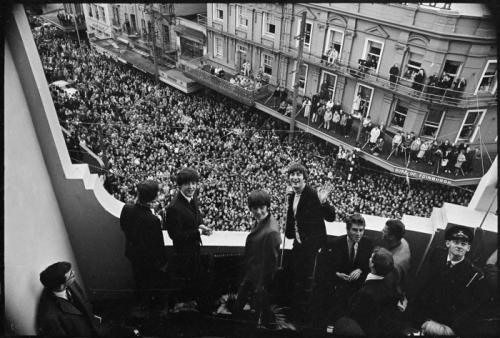
The huffy editor Monty Holcroft would have none of it: "It is our hope and indeed firm intention that, having heard the Beatles once, we shall not hear them again."
So that's what we made of the Beatles.
But what did they make of us?
For the Anthology book George Harrison reflected: "When we were flying into New Zealand it looked like England, like Devon, with cows and sheep. But in those days we were looking for some action and there was absolutely nothing happening.
"We were in the hotel room sitting around eating fish and chips with peas and watching television and suddenly, about nine o'clock at night, the channels all closed down. So we threw our dinners at the TV."

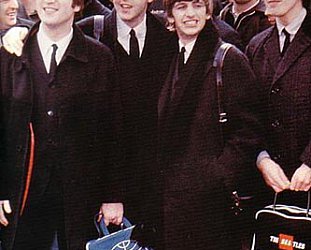
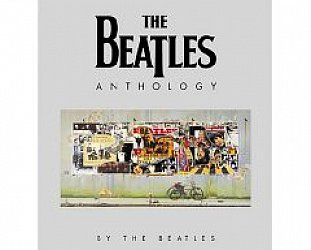
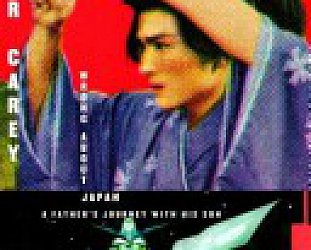
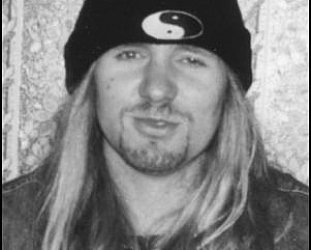
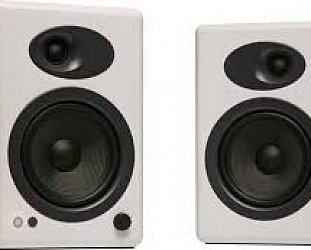

Wayne - Oct 25, 2012
Trying to find out about the vehicles used to transport the beatles from the airport especially the one they are riding on.
SaveWould you have anymore pics of the rego plates or information on who supplied the vehicles.
I have an ex Wellington police vehicle from that era that matches. GRAHAM REPLIES. One of the more obscure requests! I cannot help. Car spotters out there?
post a comment